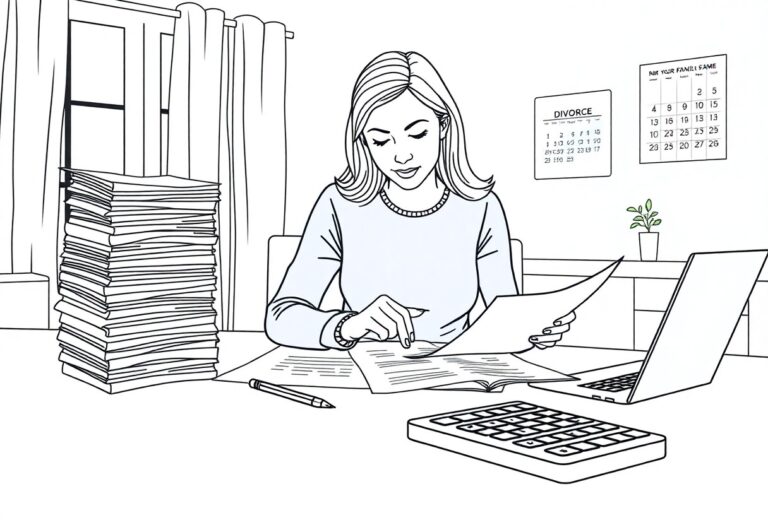Co-Parenting Agreements – How Mediation Helps Build Them
There’s a strong possibility that navigating co-parenting can be challenging, particularly when emotions run high. Developing a co-parenting agreement is vital for ensuring your child’s well-being while fostering a cooperative relationship with your ex-partner. Mediation can play a vital role in this process, providing a neutral space for you and your co-parent to openly discuss your needs and concerns. By employing effective communication strategies, mediation can help you craft a comprehensive agreement that serves both parents and, most importantly, prioritises your child’s best interests.
Mediation as a Catalyst for Productive Co-Parenting Agreements
Mediation serves as a pivotal tool in forging effective co-parenting agreements, steering discussions towards constructive outcomes. By engaging both parties in a guided dialogue, mediation helps to clarify each parent’s needs and priorities, leading to agreements that genuinely reflect the best interests of the child. This approach not only alleviates misunderstandings but also fosters a sense of commitment towards collaborative parenting efforts.
The Role of Neutral Facilitation
Neutral facilitation in mediation provides a balanced environment where both parents can voice their concerns without fear of judgment. A skilled mediator ensures that neither parent dominates the conversation, promoting fairness and equality throughout the discussion. This helps diminish hostility and encourages open dialogue, enabling both parents to work collectively towards nurturing their child’s wellbeing.
Encouraging Open Communication and Collaboration
Open communication is vital for successful co-parenting; mediation actively cultivates this important skill. During sessions, you and your partner can practise expressing feelings and needs in a structured manner, which can translate to better communication at home. By sharing perspectives, discovering common ground becomes more manageable, paving the way for collaborative decision-making that supports your child’s happiness.
Constructive communication strategies gained through mediation not only enhance your immediate discussions but also establish a lasting framework for future interactions. You learn to approach disagreements with respect and openness, focusing on solutions rather than conflicts. Techniques such as active listening and assertiveness help to clarify misunderstandings and reinforce collaboration. The mediator’s guidance allows you to navigate sensitive topics without escalating tensions, creating a sense of camaraderie that ultimately benefits your child.
Crafting Clear Expectations through Mediation
Mediation enables you to establish clear expectations that guide your co-parenting journey. Facilitating open dialogue helps you articulate your needs and preferences, minimising misunderstandings that can arise with shared parenting. As both parties collaborate to develop a mutual understanding, the likelihood of future conflicts diminishes, leading to a more harmonious parenting environment.
Essential Elements of a Co-Parenting Agreement
A well-structured co-parenting agreement incorporates imperative elements such as custody arrangements, visitation schedules, and communication protocols. It outlines responsibilities regarding education, healthcare, and financial support, ensuring both parents are aware of their roles. Incorporating these elements fosters accountability and stability in your child’s life, reinforcing a united front in co-parenting.
Customising Solutions to Fit Unique Family Dynamics
Your family’s unique dynamics dictate the need for a bespoke co-parenting agreement. Mediation allows for the flexibility to create tailored solutions that address specific situations, preferences, and lifestyles. By recognising these individual needs, you can develop a framework that works for everyone involved, promoting a healthier co-parenting relationship.
The Psychological Benefits of Mediation in Co-Parenting
Mediation not only aids in creating agreements but also plays a pivotal role in alleviating stress for all parties involved. By fostering open lines of communication, you and your co-parent can better navigate the complexities of co-parenting while gaining clarity on each other’s perspectives. This collaborative approach helps reduce feelings of isolation and frustration, ultimately promoting a healthier psychological environment for you, your co-parent, and your child.
Reducing Conflict and Anxiety for Children
Children thrive in stable environments, and mediation contributes significantly to reducing conflict. When tensions between parents diminish, your children experience less anxiety related to their living arrangements and the uncertainty of custody situations. By resolving disputes amicably, you create a more peaceful atmosphere, allowing your child to focus on their growth and development without the added stress of parental disagreements.
Fostering Long-term Co-Parenting Relationships
A successful mediation process can lay the foundation for a positive, long-term co-parenting relationship. Collaborating in this manner encourages mutual respect and understanding between you and your co-parent. Such a relationship positively influences your ability to navigate future challenges together, leading to more efficient problem-solving and decision-making regarding your child’s welfare.
Establishing a long-term co-parenting relationship enables you to approach future discussions with a clearer mindset. Trust becomes fundamental as you witness the commitment both parents have towards putting your child’s needs first. Over time, with consistent communication, you’ll find that addressing issues becomes increasingly straightforward, making it easier to collaborate on educational, health, and social decisions. Consistency in your co-parenting approach not only benefits your child but also strengthens the bond between you and your co-parent, creating a more harmonious family dynamic overall.
Navigating Common Co-Parenting Pitfalls with Mediation
Mediation can serve as a vital resource in avoiding common co-parenting pitfalls that often arise during child-rearing after separation. By fostering clear communication and understanding, you can effectively tackle issues such as conflicting schedules, differing parenting styles, and financial arrangements. The mediator acts as a neutral party, guiding discussions and helping you and your co-parent find common ground, ultimately promoting a healthier environment for your child.
Addressing Power Imbalances
Power imbalances frequently complicate co-parenting situations, often resulting in one parent feeling undervalued or dismissed. Mediation provides a structured environment where both parties can voice their concerns and expectations. This balanced approach encourages fair participation, allowing you to negotiate terms that respect both voices, which can restore a sense of equity in the parenting relationship.
Resolving Disputes before They Escalate
Proactively addressing small disputes can prevent them from escalating into larger conflicts. Utilising mediation allows you to identify and tackle issues early on, before they generate significant stress or tension. In sessions, you can work through disagreements with the help of a mediator, who provides tools and strategies to enhance your communication. This forward-thinking approach not only saves time but also reduces emotional strain on you and your child.
In effective mediation sessions, both parents are encouraged to express their concerns in an open dialogue, where solutions can be collaboratively developed. For instance, if a scheduling conflict arises regarding school events, you can articulate your needs and consider your co-parent’s perspective. The mediator can help you negotiate a practical solution, potentially creating a shared calendar or alternative arrangements. This not only resolves the immediate issue but also establishes a precedent for addressing future disputes collaboratively.

The Future of Co-Parenting: Transformative Trends in Mediation
The evolution of co-parenting practices is accentuated by transformative trends in mediation, reshaping how parents collaborate. As you navigate the complexities of shared parenting, embracing these advancements can lead to more effective and harmonious arrangements. Modern mediation techniques promote better communication, enhance emotional well-being, and help establish sustainable agreements that can adapt to changing family dynamics over time.
Integrating Technology into Mediation Practices
The integration of technology into mediation practices is revolutionising co-parenting agreements. Online platforms facilitate virtual mediation sessions, allowing you to engage in discussions from the comfort of your home. Access to digital tools enables the sharing of documents, calendars, and communication logs, making it easier to remain organised and informed throughout the process.
The Growing Trend of Collaborative Law in Co-Parenting
Collaborative law is gaining popularity in co-parenting contexts, providing a structured approach that prioritises cooperation. This model involves a team of professionals, including both parents and their respective lawyers, working together towards a mutually beneficial agreement. By creating a supportive environment, collaborative law encourages open dialogue and solution-oriented negotiation, which can significantly improve your co-parenting relationship.
In collaborative law, you not only benefit from legal expertise but also from other professionals, such as financial advisors or child specialists, who can provide insights tailored to your unique situation. This multi-disciplinary approach fosters a respectful atmosphere where emotional needs and child welfare remain at the forefront. As this trend continues to grow, many parents are recognising the long-term benefits of a collaborative framework, which helps establish trust and communication, ultimately enhancing the well-being of all parties involved.
Final Words
Drawing together the insights from mediation in co-parenting agreements, you can see its invaluable role in fostering effective communication and understanding between you and your co-parent. By engaging in this constructive process, you can create an agreement that caters to the best interests of your children while ensuring that both your needs are taken into account. This collaborative approach not only enhances your ability to navigate parenting challenges but also lays the foundation for a positive co-parenting relationship, ultimately benefiting your entire family dynamic.
divorce mediation | Separation and divorce | how does divorce mediation work | Legal Separation versus Divorce








